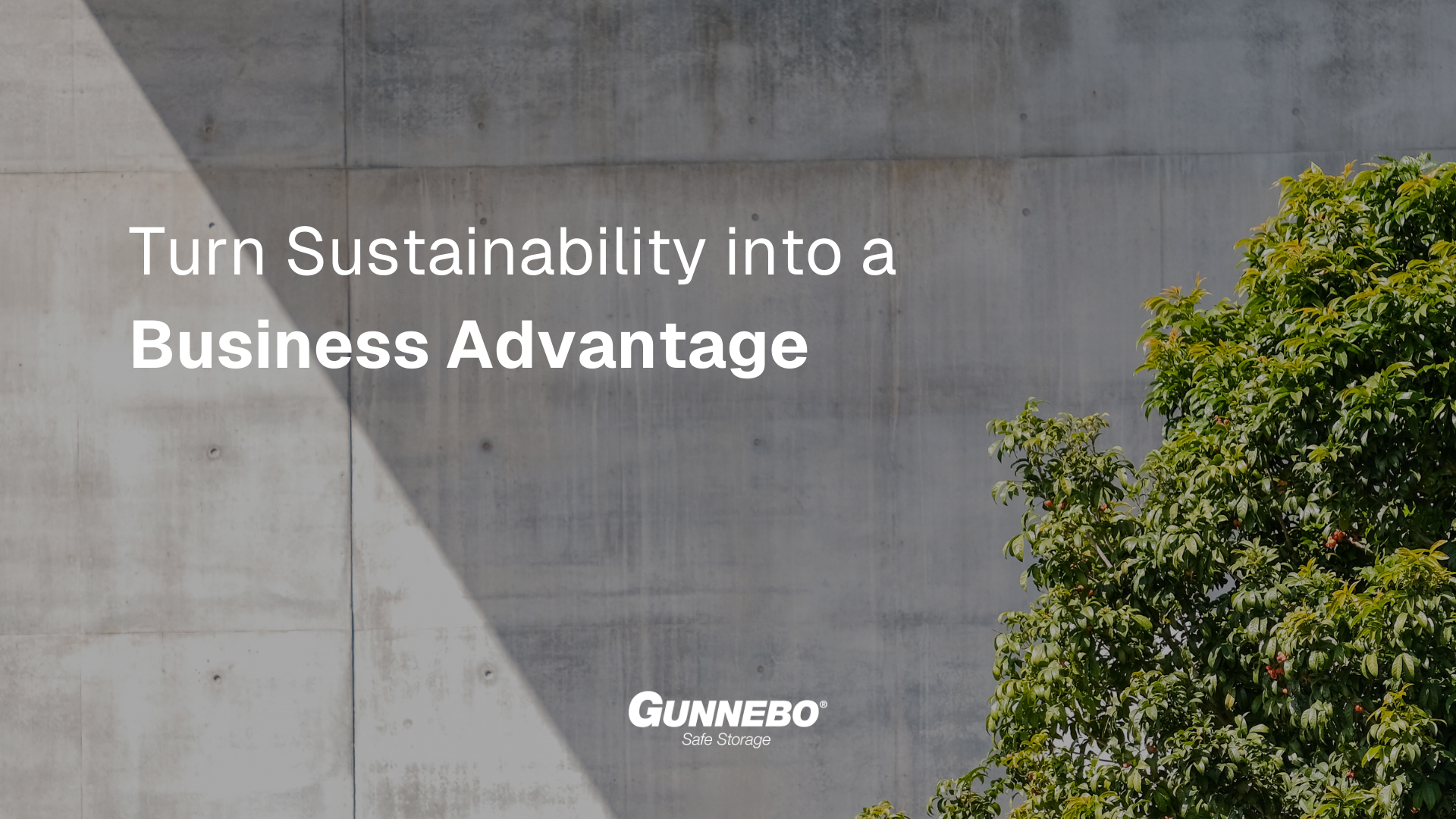Building structure around sustainability in safe storage
Within the safe storage industry sector, sustainability is being addressed in different ways, with a smaller number of manufacturers such as Gunnebo...
2 min read
Lydia Lewis : Sep 30, 2025 8:39:25 AM

Sustainability is increasingly important for businesses to consider as they plan for the future. Rising global temperatures, new regulations and growing expectations from stakeholders are changing operations and creating new ways of working.
These shifts are already disrupting supply chains and operations worldwide. Governments are introducing stricter reporting requirements, investors are prioritising environmental and social performance, and customers are looking more closely at how their suppliers align with their own beliefs and commitments.

In business-to-business markets, buyers are seeking partners who can demonstrate responsibility across their value chains, influencing long-term contracts and competitiveness.
Early sustainability programmes often focused on incremental improvements, such as greener products or energy efficiency.
Leading organisations are now shifting towards systemic change, embedding sustainability principles into every business department including procurement, product development, workforce planning and governance. This broader approach recognises that resilience depends on the ability to connect sustainability goals across the entire value chain.
At the centre of this transformation are people. Businesses that prioritise wellbeing, inclusion and continuous development are creating workforces capable of adapting to disruption and innovation alike. Upskilling and diverse leadership are not just social priorities; they are strategic imperatives that determine long-term adaptability.
The same thinking extends beyond the organisation. Companies collaborating with schools, universities and community partners are strengthening future talent pipelines, ensuring sustainability is embedded in the next generation of skills.
A company’s largest carbon footprint often comes from its supply chain. Most environmental and social impacts sit outside the four walls of a business and reducing Scope 3 emissions require collaboration with suppliers, reliable data and fresh approaches to sourcing.
Circular economy principles are shifting from “take-make-dispose” models to designs centred on durability, repairability and recyclability. Many organisations are also investing in renewable energy, experimenting with lower-carbon materials and innovating in packaging design to reduce waste.
Governance provides the structure that makes these ambitions achievable. Sustainability requires leadership from the top, backed by clear structures, measurable goals and consistent reporting that can filter through a complete organisation, inclusive of its supply chain.
This move from aspiration to accountability is embedding sustainability into corporate culture and requires ongoing dialogue with stakeholders (both internal and external,) to ensure progress is transparent and credible.
Our new white paper, Embedding Sustainability into Business: From Principles to Practice, explores how leading organisations are addressing these challenges. It highlights strategies that are proving effective, from supply chain transformation to materials innovation, and shares examples of companies, including Gunnebo Safe Storage, that are turning ambition into measurable results.
Sustainability is redefining the future of business. Those that act decisively today will not only meet stakeholder expectations but also position themselves as leaders in building a global economy that is more resilient, inclusive and prepared for the challenges ahead.
Download the full white paper here.

Within the safe storage industry sector, sustainability is being addressed in different ways, with a smaller number of manufacturers such as Gunnebo...

Connected security systems are moving into a more mature phase as organisations prepare for 2026. Locks, sensors and a wide range of devices are...

As the world looks for cleaner energy alternatives to meet climate goals, hydrogen is increasingly emerging as a promising solution. From fuelling...